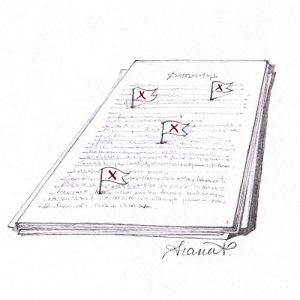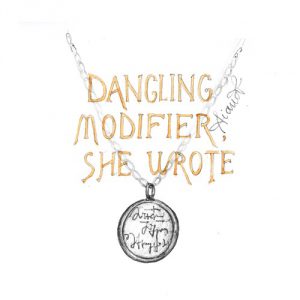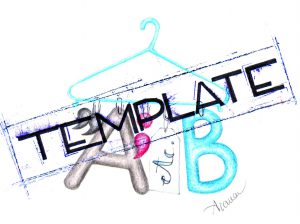Common preposition errors don’t escape a skilled proofreader’s eye. While there are rules that govern it, English preposition usage is often idiomatic. So, even if some expressions sound illogical (like center around), they may be correct. Here are some preposition examples inspired by the texts I’ve proofread. Learning more about these preposition errors and non-errors can help you make the right choice when writing a text that needs to be accurate. Read More
We rely on our computer’s spell-checker. We write in a hurry. We don’t consult a dictionary. We focus on meaning rather than form. We can’t be bothered to check our spelling. These are some of the possible answers to the question “Why do we make typos?”
Another culprit is the human brain: We’re not motivated enough to not make typos, because we read words, not letters. If there are mistakes in a text, such as a few missing letters, our brain fills in the gaps. In essence, to our brain, misspellings don’t count—we’re still able to read a text despite it having misprints. Read More
This post is about my online volunteering experience between 2015 and 2020. During this period I proofed English texts for Distributed Proofreaders, a not-for-profit organization that digitizes books and converts them to e-books, which you can download for free from the Project Gutenberg website. Most of them are public domain books, and the rest are copyrighted texts distributed with permission in the United States.
(Unfortunately, Italy has blocked access to Project Gutenberg since May 2020, because its website was blacklisted as containing material that infringes copyright laws.)
Here’s what I did as a proofreader volunteer and why I loved contributing to creating free e-books for Distributed Proofreaders and Project Gutenberg.
How I became a proofreading volunteer
A free proofreading tool can be invaluable when you’re writing an English text that needs to be flawless but don’t want or cannot afford to hire a professional proofreader. While you can’t rely on the proofreading talent of artificial intelligence, it will find many of the typos and grammatical mistakes in a text. Read More
There’s a big difference between proofreading and revising a manuscript. In simple terms, revising means looking at the bigger picture; proofreading means looking at the details. Some people use the term reviewing instead of revising a manuscript. Let’s examine in a bit more detail what revising and proofreading mean.
If you’ve decided to hire a freelance proofreader to proofread your PhD thesis or research paper, you may be wondering if you can afford the cost of proofreading services. So, how much does proofreading cost?
English proofreading rates
The cost of proofreading services varies from one service provider to the next. But comparing proofreading rates isn’t always easy. Although many proofreading agencies and freelance proofreaders publish their rates online, some companies charge other fees (such as a project fee or taxes) or have a minimum order size.
To be able to compare apple to apples, ask for proofreading quotes from the freelance proofreaders or companies you’re considering. Read More
Most professional proofreaders will answer the question “What is proofreading?” like this: Proofreading is the process of reading a manuscript that’s been edited to mark up or correct any remaining errors.
I’ve discussed in a previous post what proofreading means in traditional vs. indie publishing. Read More
As an editor and proofreader, I’d say both editing and proofreading are essential. But I know sometimes authors need to choose between paying for editing and paying for proofreading, to keep costs low. So, which one should you invest in: editing or proofreading? Read More
Many of these 12 common punctuation mistakes don’t matter much in informal writing, and very few people apart from your proofreader will care about them. But just be aware of these common errors when you’re writing a formal business letter, investor report, or any other document that must be error free. Read More
What’s the difference between editing and proofreading? Ask a few freelance editors and proofreaders to answer this question and they’ll likely give you different definitions of editing and proofreading. That’s because there’s no global standard that regulates and defines editing and proofreading services.
In this article I’ll use various reliable sources (including reference books and professional organizations) to answer the question, What’s the difference between editing and proofreading? In addition, I’ll clarify what editors and proofreaders do and don’t do so you have a better idea of what freelancer you may need to hire for your writing project. Read More
 No matter how much technology has advanced, English editing and proofreading can’t be left to computer programs. Grammar checkers—such as Microsoft Word’s built-in tool or Chrome extensions that check your grammar while you type—can spot many kinds of errors, but they ignore many others.
No matter how much technology has advanced, English editing and proofreading can’t be left to computer programs. Grammar checkers—such as Microsoft Word’s built-in tool or Chrome extensions that check your grammar while you type—can spot many kinds of errors, but they ignore many others.
Grammar apps are good at finding many misspellings, repeated words, usage and punctuation errors, and other blatant mistakes. But there’s a long list of what these apps can’t do. That’s why they won’t replace professional English editors anytime soon.
Here are just 10 things an English grammar checker tool cannot detect: Read More
 Unraveling the intended meaning of a flawed sentence is hard detective work for a reader. A dangling modifier is one of those errors that leave you wondering what the writer meant to say.
Unraveling the intended meaning of a flawed sentence is hard detective work for a reader. A dangling modifier is one of those errors that leave you wondering what the writer meant to say.
Experienced writers and editors know that they shouldn’t waste the reader’s time. Once you understand how to correct a dangling modifier, you’ll make things easier for the reader while strengthening your own writing.
In this post I’ll first explain what a dangling modifier is and then give you examples of dangling modifiers and show you how to correct them. Read More
 If you’re American, British, or Portuguese, you probably say 2 euros rather than 2 euro. If you’re German or Italian, you probably say 2 euro. So, what’s the plural of euro? Euro or euros?
If you’re American, British, or Portuguese, you probably say 2 euros rather than 2 euro. If you’re German or Italian, you probably say 2 euro. So, what’s the plural of euro? Euro or euros?
As a freelance nonfiction editor, I get to review many documents that contain financial information, and the plural of euro is a topic that comes up often in my editing work. So, I had to do research on this topic to be able to give my clients accurate advice. This research turned out to be quite interesting. In this article I’d like to share this information with you so that you have no doubts about the plural of euro, no matter what you write in English.
In short, the correct plural of euro is euro or euros, depending on whom you ask or what dictionary you consult. Let’s look at the brief history of the euro currency so you understand why the correct plural of euro is either euro or euros. Read More
A client asked me, “Should a Latin expression be hyphenated when I use it as an adjective? For example, should status quo be hyphenated?”
No. In general, there’s no need to hyphenate Latin phrases used in English. To know when to hyphenate and when not to hyphenate Latin words used in English, you need to first understand hyphenation rules. Read More
 An editorial style guide answers questions such as these: Is it startup or start-up? Our business’s priority or our business’ priority? Three percent, 3 percent, or 3%? How about the comma before or in the previous sentence? Do we need to use the trademark (™) and copyright (©) symbols in business reports? And is it correct to start sentences with and? Do contractions (like haven’t instead of have not) make us sound informal?
An editorial style guide answers questions such as these: Is it startup or start-up? Our business’s priority or our business’ priority? Three percent, 3 percent, or 3%? How about the comma before or in the previous sentence? Do we need to use the trademark (™) and copyright (©) symbols in business reports? And is it correct to start sentences with and? Do contractions (like haven’t instead of have not) make us sound informal?
These are the sorts of editorial style decisions you’ll need to make when creating reports, website content, and other forms of written business communications. Consulting a dictionary or reference book isn’t practical, because style questions don’t have just one right answer and you may waste a lot of time trying to decide what works for you. That’s why you need standards—an editorial style guide—and perhaps a freelance editor, too. Read More
Proofreading means checking the final version of a written text to find and correct any errors that eluded the copyeditor. (If you’re not sure what copyediting is, read What’s the difference between editing and proofreading?) But proofreading business reports is often more complex than that, which is why a proofreading checklist is useful.
Multiple revisions offer opportunities for introducing errors in the document, and tight deadlines can sabotage you. So, proofreading your business documents may involve not just finding and fixing typos but also some amount of fact-checking and light editing.
As a small-business owner, you’re used to wearing many hats to keep your operating costs low. When you need to resort to DIY proofreading instead of hiring a freelance proofreader, this 10-step proofreading checklist can make your job easier. Read More
A team member asked me: “When you use quotes, where does the period go: before or after the quotation marks? How about the other punctuation marks, do they go inside or outside quotes?”
The rules of punctuation with quotation marks depend on whether you follow the American or British convention. Here’s a more detailed explanation of these conventions, as well as examples of punctuation with quotation marks in a sentence. Read More





